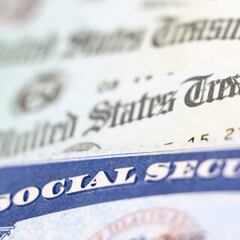How much can a retired person earn without paying taxes?
Retirees can have various sources of income... some private and some public... but how much can you make before needing to pay taxes to the IRS.


Whether retirees withdraw funds from a private retirement account like a 401(k) or a Roth IRA, or receive social security benefits, or bot, the income caps for taxes are the same.
To determine whether or not one will need to pay taxes, a retiree will need to calculate their combined total income. In most cases, according to the Social Security Administration, those who may under $25,000 a year, will not see their social security benefits taxed.
Your Social Security Number and name listed on your tax return should appear exactly as printed on your Social Security card. Avoid this common tax error that could delay #IRS processing of your tax return. https://t.co/3uU16CfYuC pic.twitter.com/myX5V4RsQA
— IRSnews (@IRSnews) January 30, 2022
As one increases along the combined income later, various rates rates on the benefits begin to kick in. For example, anyone with a combined income between $25,000 and $34,000 ($32,000 to $44,000 for married couples) could see up to fifty percent of their benefits taxed. At the highest end of the spectrum, those who earn more than $34,000 ($44,000 for married couples), could see as high as eight-five percent of their social security checks taxed.
Each year in January, the Social Security Administration will send a Social Security Benefit Statement (Form SSA-1099). This letter contains all information related to the benefit among of each worker ove the course of the year. The form can also be used by social security members when they file their taxes to see if they owe any money this year.
Related News
- Private student loan borrowers despite covid-19 still need to make payments
- Twelve states tax Social Security benefits
- Do I need to pay taxes on my social security benefits?
Taxes and Private Retirement Account
Depending on the type of retirement account one holds (i.e. Roth IRA or 401(k), taxes are levied either as the money is put into the account or when it is taken out. If you opt for a 401(k). you will need to pay taxes as you withdrawal the funds.
Related stories
The 401(k) began to gain popularity after it was established in the 1980s. Many see private retirement accounts as a way the private sector was able to evade investing in more robust pension programs by placing the responsibility on the worker to save.
Funds that are withdrawn from these accounts are also considered when the federal government determines whether or not your social security benefits will be taxed. In 2020, almost half of workers -- 48 percent -- had access to a pension or private fund. This is concerning as the Social Security Administration estimates that "By 2035, the number of Americans 65 and older will increase from approximately 56 million today to over 78 million."

